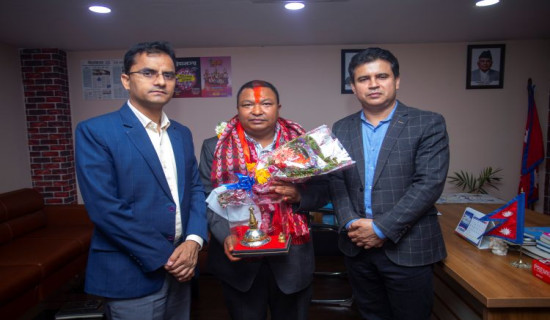- Monday, 26 May 2025
Nurturing The Republic
Today marks the completion of 15 years of the proclamation of the republic system in Nepal. The first meeting of the Constituent Assembly (CA) on May 28, 2008 declared Nepal a federal democratic republic by abolishing the 240-year-old monarchy. Although multiparty democracy was established in 1990, the country was unable to experience true democracy due to instability and monarchy's ambition to overstep the constitutional limits. The national charter drafted by the Constituent Assembly has established Nepal as a federal, secular, democratic republican state. It is an inclusive democracy, integrating marginalised communities and regions into the central political power structure and the national development process.
Many Nepalis have sacrificed their lives to make Nepal a federal democratic republic, a struggle that dates back to 1950. This form of government in which power ultimately rests with the people, and the government's legitimacy is contingent upon its ability to represent and serve the interests of its citizens. Sixteen years have elapsed since Nepal became federal democratic republic, but much more remains to be done so that the people can feel the sense of transformation in their daily lives. The widespread unemployment and mass exodus of youths abroad for education and jobs have caused dissatisfaction among youths. The political parties that have earned the status of most prominent players in national politics are often blamed of deviating from principle and unshakable moral standards.
As no party has been able to get majority to form the government, there is the compulsion to move with the coalition strategies which often result in making and breaking of equations and ultimately leading to unstable governments. The shifting coalition in the federal level has its effects in provincial governments as well. Instability in the provinces will send a negative message in the mass which is detrimental to the system itself. Hung parliament and coalition government are not new things but what is important is the development of coalition culture that accommodates all political forces and forms a common view to serve the best interests of the people and nation. The government has put good governance, social justice and prosperity on priority but strong political willpower is a must to meet these goals. People will not believe in sweet rhetoric unless their concerns of economic wellbeing are addressed.
Nepali citizens aspire to peace, stability, employment opportunities, access to education, health care services and economic growth. The periodic elections have shown the shifting trends, new parties and independent candidates have made their mark in recent periodic election which put pressure on the grand old political parties to transform themselves, exercise internal democracy, and if they deviate from people's agenda, they will fail to win the hearts and minds of the people. Good governance, curbing corruption, reducing regional disparities, bringing marginalised to the mainstream, developing infrastructure, fostering industries and creating job opportunities should be high in the agenda of the government.
Although anti-systemic forces are raising their heads and supporters of former unitary system are trying to create anti-federal narratives by cashing in on the frustrations of the masses, citizens have very strong faith in this system. It’s the high time that leaders put their partisan interest aside and stood together to build the nation and fulfil the aspirations of the people. Federal democratic republic is one of the most beautiful forms of governance and the only viable path forward is to enhance and improve the way it functions and delivers.

















